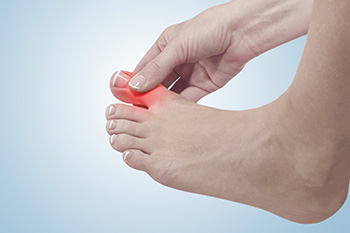
Gout is a form of inflammatory arthritis characterized by sudden and severe attacks of joint pain, commonly affecting the big toe. It is caused by the crystallization of uric acid in the joints, leading to inflammation and pain. Uric acid plays a dual role in our health, serving as both a potential risk factor and a protective element. Gout is often associated with high levels of uric acid in the blood, a condition known as hyperuricemia. Uric acid is a natural waste product that forms when the body breaks down purines found in some foods and body cells. Gout attacks, which can be excruciatingly painful, typically occur suddenly and often at night. The affected joint becomes red, swollen, and extremely tender. Certain factors can trigger gout attacks, including obesity, the consumption of purine rich foods such as red meat, seafood, and alcohol intake. Men are more likely to develop gout than women, and the risk increases with age. Family history, obesity, and certain medical conditions including hypertension and kidney disease can also raise the risk. Preventing gout involves avoiding triggers, staying well hydrated, and managing underlying conditions. If you have intense pain in your big toe and suspect it is gout, it is suggested that you make an appointment with a podiatrist for treatment and management of this condition.
Gout is a painful condition that can be treated. If you are seeking treatment, contact Barbara J. Aung, DPM from Aung Foot Health Clinic . Our doctor will treat your foot and ankle needs.
What Is Gout?
Gout is a form of arthritis that is characterized by sudden, severe attacks of pain, redness, and tenderness in the joints. The condition usually affects the joint at the base of the big toe. A gout attack can occur at any random time, such as the middle of the night while you are asleep.
Symptoms
- Intense Joint Pain - Usually around the large joint of your big toe, and it most severe within the first four to twelve hours
- Lingering Discomfort - Joint discomfort may last from a few days to a few weeks
- Inflammation and Redness -Affected joints may become swollen, tender, warm and red
- Limited Range of Motion - May experience a decrease in joint mobility
Risk Factors
- Genetics - If family members have gout, you’re more likely to have it
- Medications - Diuretic medications can raise uric acid levels
- Gender/Age - Gout is more common in men until the age of 60. It is believed that estrogen protects women until that point
- Diet - Eating red meat and shellfish increases your risk
- Alcohol - Having more than two alcoholic drinks per day increases your risk
- Obesity - Obese people are at a higher risk for gout
Prior to visiting your podiatrist to receive treatment for gout, there are a few things you should do beforehand. If you have gout you should write down your symptoms--including when they started and how often you experience them, important medical information you may have, and any questions you may have. Writing down these three things will help your podiatrist in assessing your specific situation so that he or she may provide the best route of treatment for you.
If you have any questions, please feel free to contact our office located in Tuscon, AZ . We offer the newest diagnostic and treatment technologies for all your foot care needs.





